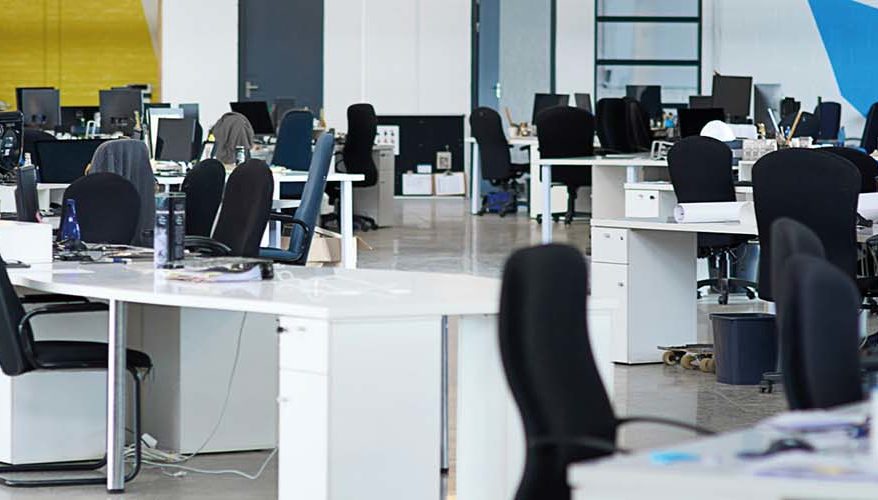
A cutting-edge, technology-enabled workplace that not only promotes flexibility and productivity, but cuts costs and attracts (and retains) talented employees.
Sound good? This is the smart office; workplace design that puts smart technology at the forefront.
After 20 years of technology convergence, alongside the rapid growth of the internet, 2017 sees a new era. This era is, by definition, smarter and faster; with just the swipe of a fingertip, we now have everything. Why shouldn’t the workplace be the same? According to a study by British Land in partnership with WORKTECH Academy, 90% of decision-makers already see a business reason for utilising a smart office.
The smart office brings together two main elements: advanced facilities management systems, and the Internet of Things (IoT), to create an office experience not dissimilar to using a smartphone to manage your life. These two components create a unified and functional workspace, where the benefits stack up against the traditional office:
Productivity
When technology enables an employee to create a flexible working environment, there is more scope for innovation. Being able to tailor your working day to your own preferences, like booking a different workspace for the day, or controlling the environment around you, undoubtedly has a positive effect.
Talent
Attracting and retaining talent can often be a challenge, but the personalisation and flexibility of a smart office could help the situation. At Deloitte’s Amsterdam offices, dubbed The Edge, employees manage every aspect of their office experience via a dedicated app. Since introducing this, Deloitte has seen a fourfold increase in job applications and an impressive 60% reduction in absenteeism.
Wellbeing
Workplace wellbeing is big business in the UK, with around £14 billion lost a year due to poor employee health. Smart offices help promote a healthy environment – being able to monitor and adjust lighting, air or water quality is a simple yet effective route to avoiding sickness.
Branding
Creating a brand often begins with first impressions, and the smart office can go the extra mile in creating them. For example, guests can scan in on their smartphones rather than queuing to sign in on a dusty visitor book, which could make for a very welcoming introduction.
Cost Control
Efficiency is paramount to cost, and a smart office allows for maximum efficiency in all areas. Examples include ensuring space is used most effectively, with real-time results from sensors, or keeping watch on heating or cooling systems that may waste energy. Al Bahr Towers in Abu Dhabi have utilised smart office functionality and reduced air conditioning costs, with screens that allow natural light, yet block direct exposure to the sun.
Sustainability
Expertly managing heating and cooling systems doesn’t just save money. Sustainability in the modern workplace is important, with growing emphasis on measuring energy usage via smart meters and sensors. The smart office can do all of this at the touch of a button, ensuring the workplace is as energy-efficient as possible.
As British Land state, the smart office should be a journey, rather than a destination. With technology constantly evolving, the first wave of smart offices will begin to take shape over the next 12 months, with major strides expected to be made by 2020.
Embracing a technology-enabled workplace will promote flexibility and productivity, cut costs, and help you retain talented employees.



